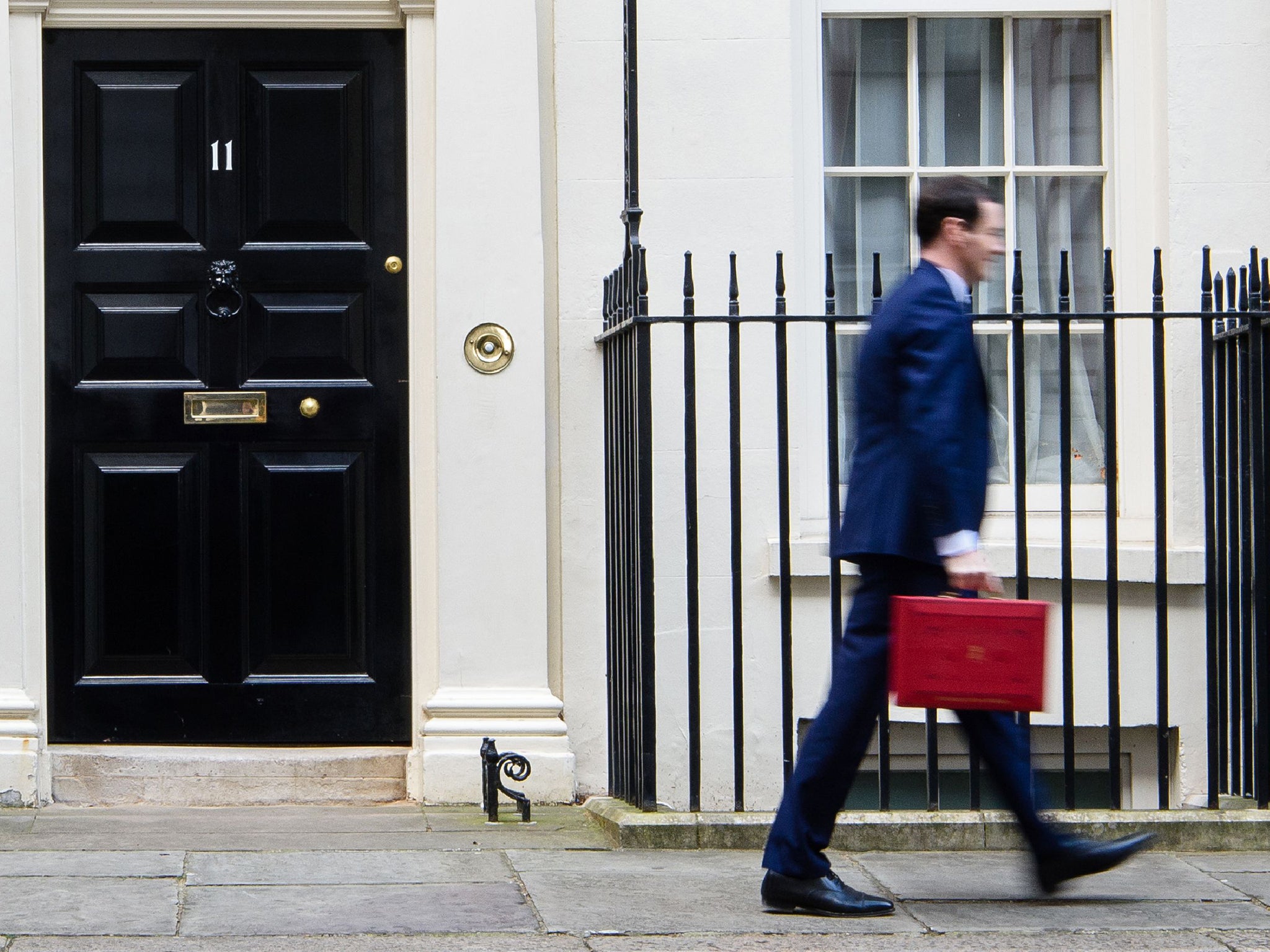Budget 2016: Office for Budget Responsibility casts doubt on George Osborne's bid to close tax loopholes
One of the measures with the boldest claims for its tax-raising potential was an attack on so-called 'disguised remuneration'

Your support helps us to tell the story
From reproductive rights to climate change to Big Tech, The Independent is on the ground when the story is developing. Whether it's investigating the financials of Elon Musk's pro-Trump PAC or producing our latest documentary, 'The A Word', which shines a light on the American women fighting for reproductive rights, we know how important it is to parse out the facts from the messaging.
At such a critical moment in US history, we need reporters on the ground. Your donation allows us to keep sending journalists to speak to both sides of the story.
The Independent is trusted by Americans across the entire political spectrum. And unlike many other quality news outlets, we choose not to lock Americans out of our reporting and analysis with paywalls. We believe quality journalism should be available to everyone, paid for by those who can afford it.
Your support makes all the difference.The Chancellor moved to close a raft of tax avoidance and evasion tricks, although the Office for Budget Responsibility (OBR) has cast doubt on the chances of success.
One of the measures with the boldest claims for its tax-raising potential was an attack on so-called “disguised remuneration”, where employees’ pay is hidden in the form of loans rather than in salaries.
The scheme was made famous in the cause célèbre of Glasgow Rangers FC, which paid its players in loans from a trust. A Scottish appeal court has ruled the structure was used largely to try to avoid national insurance for employees and employers, and income tax.
George Osborne said he would bring forward a package of unspecified measures to tackle the loophole, saving the taxpayer about £2.5bn in the next five years.
However, the OBR said that of all the tax-raising measures announced, it is the only one where the risk of the revenue forecasts being wrong is rated “very high”.
Cormac Marum at accountants Harwood Hutton said: “In each of his Budgets, the Chancellor has included a figure he hopes to raise from attacking such tax arrangements. There seems to be little or no correlation with results in the eventual tax take. I would therefore share the scepticism of the OBR.”
Given the OBR risk rating of “medium high” was the Chancellor’s hope to raise nearly £1bn a year by capping the amount of relief companies are allowed on interest repayments when they run up debts. Historically, the tax code has encouraged companies to maximise their debts by offering them relief on the repayments, a move intended to encourage companies to borrow and expand.
But it has been skewed by multinationals, some of which have taken out artificially big loans primarily to create interest repayments that wipe out their taxable UK profits.
That loophole is now being restricted, so businesses can now only get tax relief on interest expenses up to 30 per cent of their underlying profits.
Simon Morris at professional services firm PwC said: “This will have a significant impact on large businesses, resulting in an increase in taxable profits.”
Join our commenting forum
Join thought-provoking conversations, follow other Independent readers and see their replies
Comments